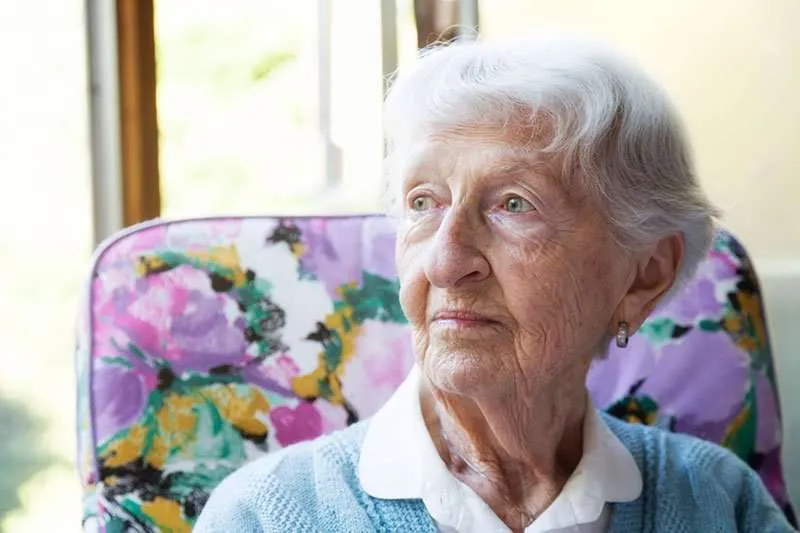Visiting Mom recently brought to light some unsettling signs. Although she’s always been an early riser, now it is difficult for her to wake up before lunchtime. Rather than pulling out all the stops for an elaborate home-cooked meal, she prefers to merely warm up a can of soup; and can barely finish a small bowl. Additionally, she has lost interest in enjoying time with her beloved friends from her sewing club. Is there reason to suspect she may be suffering from symptoms of dementia or depression?
There are a few similarities between the two, including:
- Sleeping and eating pattern changes
- Disinterest in formerly enjoyed interests and hobbies, and spending time with family and friends
- Problems with memory and the ability to focus
However, there are also several telltale differences to help identify whether depression or dementia could be at play:
Dementia:
-
- A slow, progressive decline in mental functioning
- Noticeable difficulties with motor and/or language skills
- Problems with memory, without being aware of these problems
- Confusion in knowing the present date, time, and surroundings
Depression:
-
- A more rapid decline in mental functioning
- Difficulties with concentrating
- Somewhat slower, but still normal motor and language functioning
- Challenges with memory issues, but being aware of the struggle
- Consciousness of current date, time and surroundings
At times, both health concerns can affect a person simultaneously. Brent Forester, MD, director of the mood disorders division in the geriatric psychiatry research program at McLean Hospital in Belmont, MA, shares, “40 to 50% of people with Alzheimer’s disease get depression, but depression also may be a risk factor for Alzheimer’s.”
If you suspect either symptoms of dementia or depression in a loved one, schedule an appointment as soon as possible with his or her doctor. Obtaining a correct diagnosis and starting a treatment plan is essential.
Help for depression might include an antidepressant and professional counseling, or hospitalization if the challenges are severe and require more intensive treatment. Dementia care typically involves medications that help with particular symptoms, including sleep problems, memory loss, or changes in behavior.
If someone you love has been diagnosed with either depression or dementia, or struggles with any other difficulties of aging, Lend a Hand Home Care can help preserve quality of life by offering personalized senior care in Hidden Valley and the surrounding areas. With our wide variety of senior home care services, such as companionship, meal preparation, running errands, household chores, transportation, and personal hygiene care, we’re here for whatever symptoms your loved one is experiencing. Contact us at 775-322-8414 to learn more or to schedule a free in-home consultation. Please see our full service area.





